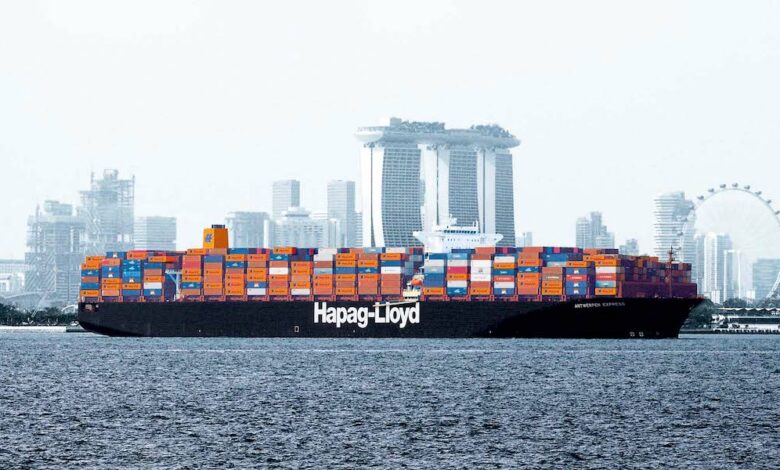MAN to retrofit up to 60 Seaspan and Hapag-Lloyd ships to green methanol

MAN Energy Solutions has signed a conversion commitment agreement with containership owner Seaspan and containerline Hapag-Lloyd.
Under the terms of the agreement, MAN PrimeServ, MAN Energy Solutions’ after-sales division, will deliver 15 engine retrofit solutions for the conversion of vessels powered by individual MAN B&W S90-type fuel-oil-powered engines from the Seaspan and Hapag-Lloyd fleets to dual-fuel ME-LGIM engines capable of running on green methanol.
This agreement includes 45 optional engine retrofit solutions. According to MAN, each conversion can provide a CO2 reduction of 50,000–70,000 tonnes each year when operating on green methanol.
MAN Energy Solutions developed the ME-LGIM dual-fuel engine for operation on methanol, as well as conventional fuel. When operating on green methanol, the engine offers carbon-neutral propulsion for large merchant-marine vessels. Currently, more than 100 ME-LGIM engines are on order or in service.
“This agreement shows clear intent to drive the industry transition toward zero-carbon shipping. Retrofitting existing engines to dual-fuel running is one of the most effective ways to reduce greenhouse gas emissions and to derive greater efficiency and profitability from an existing shipping fleet, while simultaneously delivering fuel flexibility and extending operational lifetimes,” Thomas Leander, head of solutions and site manager at MAN PrimeServ in Frederikshavn, said.
Seaspan is primarily focused on long-term time charters with the world’s leading container shipping lines. It has a newbuild program of 70 vessels which will bring Seaspan’s fleet to a total of 200 vessels and 1.9m teu capacity.
On the other hand, Hapag-Lloyd has a fleet of 250 container ships and a total transport capacity of 1.8m teu. The company aims to achieve net zero by 2045.
Another shipping giant, Maersk, recently announced that it would be retrofitting one of its ships to methanol dual-fuel using MAN technology. The first engine conversion is set to take place in the middle of 2024.

This is actually such a waste of money and resources to convert ships to retrofit. Rather they can use bio or something alike ESPECIALLY WHEN THERE IS NO GREEN METHANOL AROUND and use money to be used for new builds. Do not understand the rationale. It’s works only for MAN